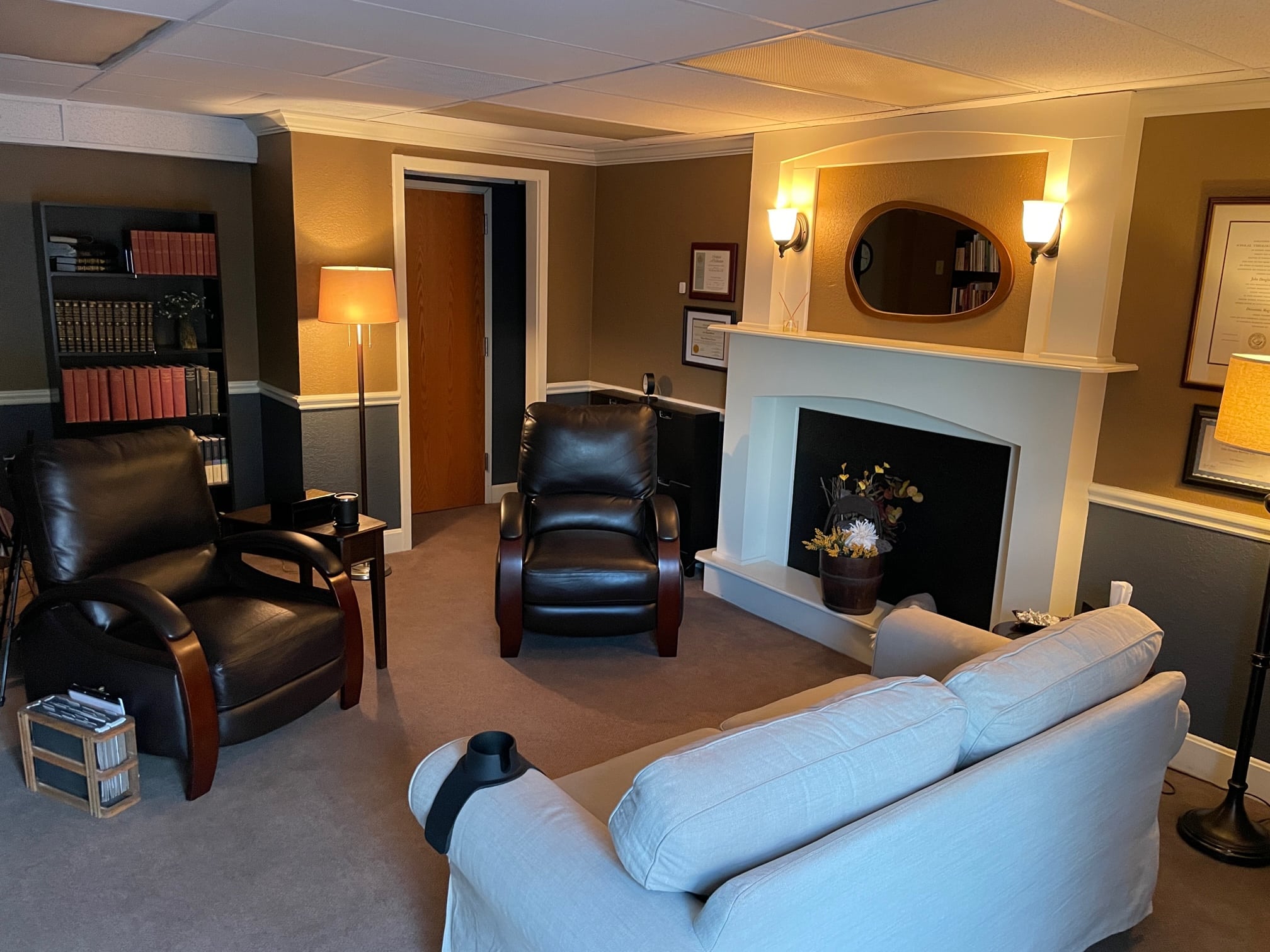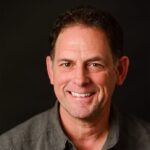Offering couples therapy intensives in Kansas City, Missouri (Overland Park, Kansas)
Personally Speaking
Life experiences shape every counselor’s vantage point and hone the information and tools collected through academic training. My particular experiences include:
- Growing up in a military family.
- Losing my father at age 5, and gaining a step-father.
- Juggling with my wife a two-career household and academic pursuits while raising three amazing children and adapting to special needs.
- Caring for aging parents, including managing dementia.
- Experiencing the joys and struggles of various stages of 30+ years of married life, and the blessing of emerging through them.
- Welcoming In-laws and grandchildren into our family.
Like you, my experiences have come with stress. Families are under unprecedented stress today, which can be a major enemy of marriages. But stress doesn’t have to turn marital partners into enemies, nor need it be allowed to destroy a relationship. There are ways we can protect each other and, in the process, protect our marriages.
Doug and Claudia Burford at the Kauffman Performing Arts Center in Kansas City, Missouri.
My wife and
My wife and I have faced our own personal and professional stressors. Jointly we have jumped through the hoops of academia, changed cities four times, raised babies, guided teenagers, helped a child overcome a disability, changed careers, pinched pennies, aided parents in transitions, and re-fitted an empty nest. We’ve been helped by tools that served us well during these stressors, and you can be helped by them, too.
My wife and I are complete opposites according to any temperament scale or personality test. Some people might call that “incompatibility;” we’ve come to experience it as complimentary, discovering the value in different approaches to life. I’m not a big believer in “incompatibility.”
A prevalent cultural problem is isolation and loneliness. In fact, in 2018 Great Britain’s Prime Minister added a cabinet position called The Minister of Loneliness. It seems like most technological advancements are new ways to do things all by ourselves.
This can create loneliness—even in marriage—as instead of drawing together to accomplish tasks, we isolate to “get things done” on one computer screen or another. We are not made for isolation and loneliness; we are made for relationship.
“…A healthy marriage is also about valuing, instead of invalidating the ways we’re different. We can have different ideas about our shared lives and still help each other be our best selves.”
Couples need help in this century to challenge cultural isolation and reclaim friendship with others, and with each other. Companionship, and having a best friend with whom to walk through life, is part of wellness.
Another prevalent cultural problem that affects marriages is the sexualization of our culture. Sex is everywhere, yet rarely depicted in a healthy way. Often, it is depicted as exciting outside of marriage and boring or nonexistent within. Practices are commended in popular media that are damaging to relationships, and can leave wounds. But these wounds can be healed, and the truth behind the joys of married intimacy discovered or restored.
A healthy marriage is also about valuing instead of invalidating the ways we are different. We can have different ideas about our shared lives and still help each other be our best selves.
Dr. John Gray says, “Opposites attract, and then attack.” Don’t try to change your partner into a carbon copy of yourself. Many marriages have wasted years trying to change each other, rather than finding strength in their differences as they adjust to each other. I would love to help you gain tools and understandings that will enable you to experience a new, mutually satisfying marriage.
My Overland Park couples therapy office.
Office: Overland Park, Kansas
Doug’s office is in Overland Park, KS, a suburb of the greater Kansas City metropolitan area, which straddles the Kansas/Missouri state line.
Kansas City is a hidden gem in America—an historic center, boasting the nation’s WWI Museum, leading industries, fine arts, major league sports, respected hospitals and universities, growing suburbs in every direction, creative shopping, and a plethora of dining options.
Clinical Experience
I started my professional career in 1984 as a social worker in an inner-city environment. The relational dysfunctions that often worsen urban poverty exposed the limits of social work for creating life change.
This led me to seminary for training. I wanted to address the spiritual roots of human problems. Since then, I’ve held pastoral positions in Presbyterian and in Alliance (C&MA) churches—all in quite different settings—adding breadth to my experience of American cultures.
Pastoral ministry led me to an appreciation for therapeutic work as complimentary to spiritual growth, and as an important aspect of one’s journey toward wholeness. I wanted to learn more about how to help people through counseling.
While the graduate counseling program was intense and equipping, I wanted to continue to expand my skills in helping couples through relationship challenges. Nearly everything I read mentioned the research of Dr. John Gottman. Dr. Gottman’s writings and the resources offered by The Gottman Institute offered practical approaches to help couples overcome common problems.
After becoming trained as an Educator for The Gottman’s Institute’s (TGI) Seven Principles for Making Marriage Work” program, I finished three levels of training in Gottman Method Couples Therapy and am on track for Certification. I’ve also completed specialized training with TGI in Affairs and Trauma and in Couples and Addiction Recovery. In addition to Gottman Training, I completed a Certificate Course with Dr. Sue Johnson that integrates Attachment Theory and Emotionally Focused Couples Therapy and studied the research of Dr. Patrick Carnes on sexual addiction in a couples context.
I lead “The Seven Principles for Making Marriage Work” workshop with my wife, Claudia. She is a trained Facilitator for the Gottman Institute’s “Bringing Baby Home” program, which I co-lead with her as well.
Trauma in the history of one or both partners can complicate relationship interactions in a way that is hard to understand and can be a challenge to change. My work with trauma through Eye Movement Desensitization and Reprocessing (EMDR) and other means is a resource that has helped couples.
I’m also a certified spiritual director and on the faculty with The Leadership Institute of Orange, CA—a certification program for spiritual directors. I can thus incorporate spiritual understandings and resources into the therapeutic process for those couples who have that desire.
In my down time, I pursue decades-long avocations of writing, and of photography—being especially drawn to still and silent images encased in fog. With my wife, I enjoy ministry, shared leadership of seminars, exploring coffee shops and antique malls, rearranging the furniture, and traveling West to visit our children and grandchildren.


